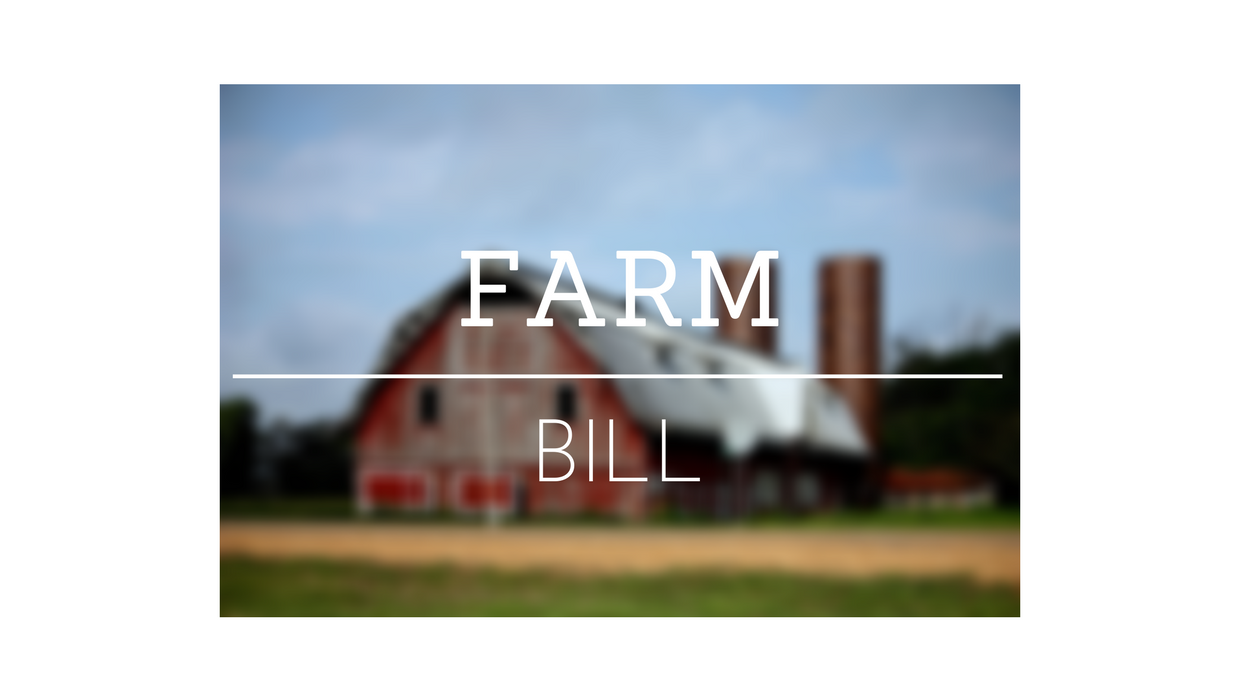Like rifle fire in a small battle, activity on the Senate version of the 2018 farm bill came in short bursts June 27.
Senate Agriculture Committee Chairman Pat Roberts, R-KS, and Ranking Member Debbie Stabenow, D-MI, opened the day with short speeches saying they were continuing to add amendments to the bill, but he wanted to get the bill passed, before the Senate adjourned for its Independence Day “work session”. Roberts said at the time 18 amendments were being added to the bill, although the full details had yet to be disclosed.
One amendment that Roberts confirmed had been added came from Sen. Chuck Grassley, R-IA, to reform the definition of what it means to be “actively engaged” in a farming operation in order to receive government payments. The amendment had been a part of the 2014 farm bill, but had been absent in this iteration.
When the amendment was added through negotiation, Grassley tweeted, “GOOD NEWS it looks like we’re on our way to the Senate adopting my amendment on payment limits in the Farm Bill so only REAL family farmers will receive them SO MUCH COMMON SENSE that Chair Roberts/RM Stabenow are including my amendment in the cmte bill”
Roberts and Stabenow told reporters they are trying to work out remaining amendment issues, including a proposal by Sen. Marco Rubio, R-FL, to stop trade promotion program spending at entities owned by the Cuban military.
Another amendment, by Senate Foreign Relations Committee Chairman Bob Corker, R-TN, and Sen. Pat Toomey, R-PA, to restrict President Donald Trump’s ability to impose tariffs on the basis of national security was proposed, but Sen. Sherrod Brown, D-OH, blocked a unanimous consent order. Roberts and Stabenow are each opposed to the tariff amendment.
Much of the afternoon debate was interrupted by events earlier in the day at the Supreme Court when Justice Anthony Kennedy announced his retirement. That sent several Democratic women onto the floor the address their concerns about women’s reproductive rights.
Toward the end of the day, Sen. John Thune, R-SD, gave reprise of his floor speech of the day before on his amendment to allow partial haying and grazing on Conservation Reserve Program land.
“The Conservation Reserve Program, or CRP, plays a very significant role in South Dakota’s economy,” Thune said. “But farmers have spent years frustrated with the Department of Agriculture’s management of the CRP program, particularly the program’s sometimes excessive restrictions on land use and requirements to destroy vegetative cover under mid-contract management, even in drought years when feed supplies are short.
“The proposal would allow haying on a third of all CRP acres and limited grazing on most CRP land. This common-sense reform, along with other CRP reforms I proposed that are included in the bill in front of us today, would address some of farmers’ major concerns with current land-use rules for acres enrolled in CRP.”
At the end of Thune’s remarks, Roberts said he would support Thune’s amendment.
Senate Majority Leader Mitch McConnell, R-KY, then announced he had filed cloture on the farm bill. Under the cloture rule, a two-thirds majority is required to end debate and permits each member to speak for an additional hour after that before voting on final passage.
Under the arcane Senate rules, a vote on the final bill could be held one hour after the Senate convenes June 29, but senators could instead yield time and hold the vote early, given the upcoming break and senators wanting to go back home. Or they could fail to come to agreement and have to take up the bill again after their week out of Washington, since the Senate traditionally tries to not be in session on Fridays, especially before a lengthy recess.
As it is, it’s not clear if there will be votes on any individual farm bill amendments as the Senate farm bill debate of June 28 unfolds.
Meanwhile, a release issued late June 27, Roberts and Stabenow thanked the diversity of support for the bipartisan Senate farm bill, in which 504 groups representing thousands of agriculture, food, nutrition, hunger, forestry, conservation, rural, business, faith-based, research and academic interests have issued statements.
“We’re pleased the Senate farm bill has overwhelming support from hundreds of leading organizations across the country,” Roberts and Stabenow said in the release.
“This is what happens when the Senate works the way it is supposed to work —in a bipartisan fashion. This is a good bill that accomplishes what we set out to do—provide certainty and predictability for farmers, families, and rural communities.”
Larry Dreiling can be reached at 785-628-1117 or [email protected].
Follow Larry Dreiling on Twitter as he provides updates on #FarmBill18 throughout the day.

